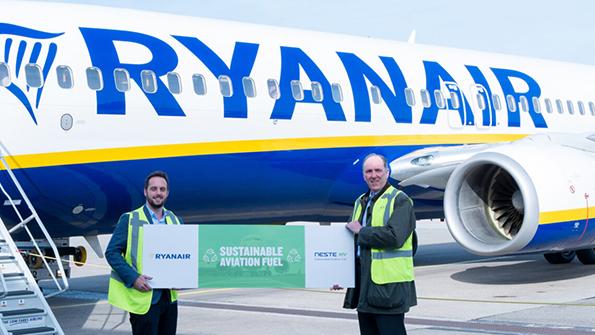
If Ryanair Group wants to hit 300 million passengers a year by 2034, its operations will need to be sustainable, and that is likely to require substantial sustainable aviation fuel (SAF) investments.
Group CEO Michael O’Leary has no plans to invest directly in SAF-production facilities, like International Airlines Group (IAG). Instead, he is placing his bets on existing fossil fuel providers emerging as the SAF leaders of the future.
“The problem with investing in one supplier in one geography is you’ve got to get the SAF to the airport. And ultimately, that’s why I’m still of the view that it will be the oil majors who will be the only ones who actually have the capacity to produce SAFs in meaningful volumes, and then get them to the airport,” O’Leary said.
Ryanair has an extensive network of 91 bases across Europe, and one of the challenges will be securing enough uplift in all these locations. The Irish LCC has committed to buy SAF from Neste, OMV, Repsol and Shell, covering its operations in Austria, France, Germany, Spain, the Netherlands and the UK. These agreements represent 9.5% of the total fuel needed to meet its target of 12.5% of Ryanair flights powered with SAF by 2030.
“We have reset our CO2 per pax/km target at a very ambitious 50 grams by 2031 (previously 60 grams by 2030),” Ryanair said.





